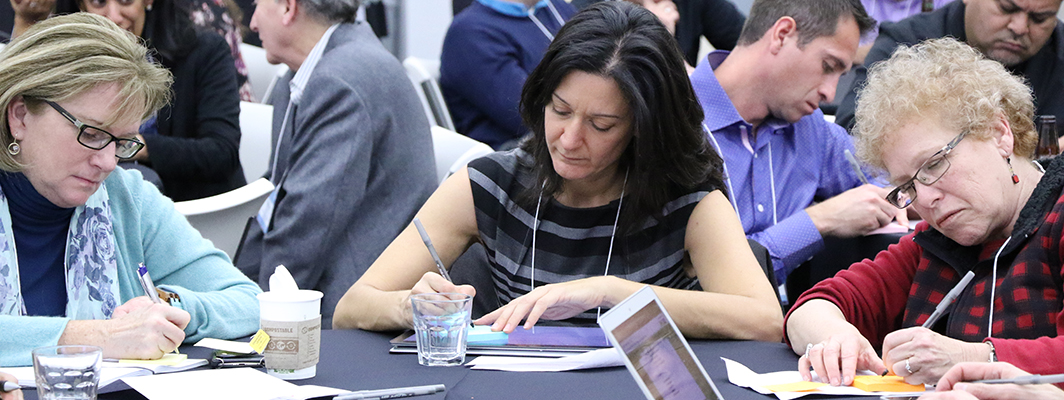
At SXSWedu, we asked about 70 participants to do just that – put themselves in the role of a new principal. As resources, we provided these two tools:
Through this session, we aimed to stimulate new ideas, micro-credentials being one, for leveraging professional learning to ensure educators develop the concrete competencies they need to implement student-centered instruction.
Participants joined small groups by domain to explore the JFF competencies and identify specific skills associated with those competencies. Each group thought of how best to craft a professional development plan to develop those skills in educators, before landing on micro-credentials as the tool to help them do so.
For example, participants thinking about interpersonal competencies crafted a micro-credential focused on building relationships that support individual and collective success. They identified two possible methods for achieving this competency, lesson study and the Critical Friends protocol, because both methods have a reflective and practical component.
Micro-credentials intersect powerfully with the mission of this year’s SXSWedu, which was to innovatively lead students and educators into the future of learning. It was clear that participants saw micro-credentials as one of the ways to do this.
Micro-credentials generate new ways of approaching the professional development required by today’s increasingly complex teaching and learning environments. Session participants reported how micro-credentials allowed everyone, from administrators to students, to activate learning through authentic and meaningful practice — a key component of eff21st-centurycentury learning.
Thanks to Andy Calkins of NGLC, Nicole Assisi of Thrive Public Schools, and Rebecca Wolfe of Jobs for the Future for partnering with Digital Promise to lead this session and push professional learning into the next generation.

We want to hear from you!
Please take this 5-minute survey and help us serve you better.
